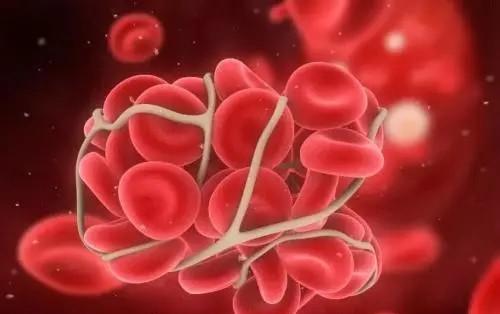Introduction: Cold agglutinin syndrome refers to an autoimmune disease characterized by cold agglutinin causing the agglutination of red blood cells in the blood vessels at the end of the limb at low temperatures, developing skin microcirculation disorders, or characterized by mild hemolytic anemia. The U.S. FDA's approval of Enjaymo's listing will bring new treatment options to such patients.

On February 4, 2022, the U.S. Food and Drug Administration (FDA) approved Enjaymo (sutimlimab-jome) for reducing red blood cell transfusion needs due to hemolysis in adult patients with cold agglutinin disease (CAD). Enjaymo is the first and only treatment approved for CAD patients, which works by inhibiting the destruction (hemolysis) of red blood cells.
CAD is a chronic, rare form of autoimmune hemolytic anemia that affects the lives of about 5,000 people in the United States. Patients with CAD may develop severe anemia, which can lead to fatigue, weakness, shortness of breath, dizziness, chest pain, arrhythmia, and other potential complications.
The principal investigator of the CARDINAL study said: "For patients with cold agglutinin disease, it is as if their body's immune system is at war against itself. Healthy red blood cells are being ruthlessly destroyed every day. For the first time, we have introduced a treatment for complement-mediated hemolysis, which is the root cause of the destruction of red blood cells in many CAD patients. In this pivotal study, which lasted 26 weeks, it was demonstrated that the use of sutimlimab could improve anemia in patients by measuring hemoglobin and bilirubin levels. ”
In the CARDINAL study, Enjaymo achieved its primary efficacy endpoint, a compound endpoint defined as normalization of hemoglobin (Hgb) levels≥12 g / dL or an increase in hemoglobin levels at the time point of treatment evaluation (averages at weeks 23, 25, and 26) compared to baseline≥2 g / dL, and from week 5 to week 26 without the need for blood transfusions, or from weeks 5 to 26 according to the regimen to ban the use of the drug. The study also met secondary endpoints, including improvement in hemoglobin and normalization of bilirubin.
In the CARDINAL study, the most common adverse reactions (≥10%) included respiratory infections, viral infections, diarrhea, dyspepsia, cough, arthralgia, arthritis, and peripheral edema.
After the end of the 26-week treatment period of the CARDINAL study (Part A), eligible patients continue to receive Enjaymo's extended study.
The recommended dose of Enjaymo is administered on a bodyweight basis (6500 mg for patients with 39-75 kg, 7500 mg for patients with > 75 kg). Enjaymo is given intravenously weekly for the first two weeks and every two weeks thereafter. Enjaymo is expected to go public in the U.S. in the coming weeks.
The U.S. FDA has awarded Enjaymo breakthrough treatment designations and orphan drug designations, as well as priority review qualifications. In addition to this, Enjaymo has been submitted to regulators in Europe and Japan, and the review is ongoing.